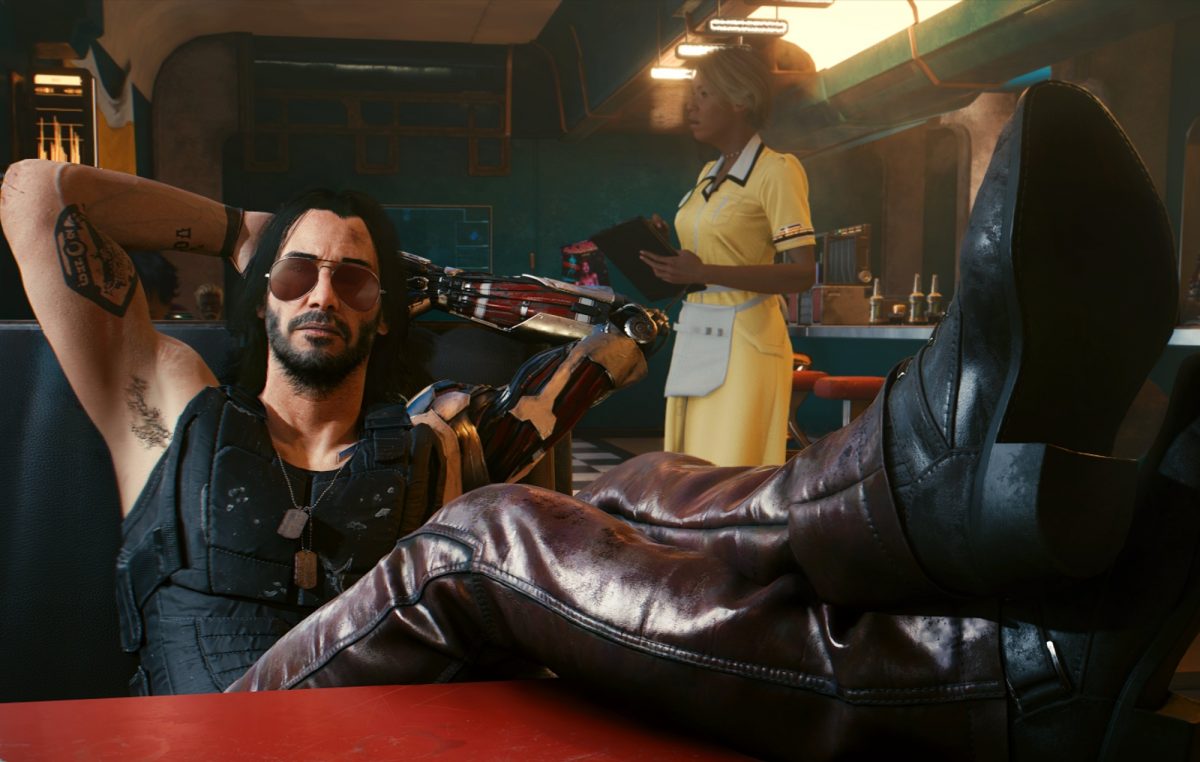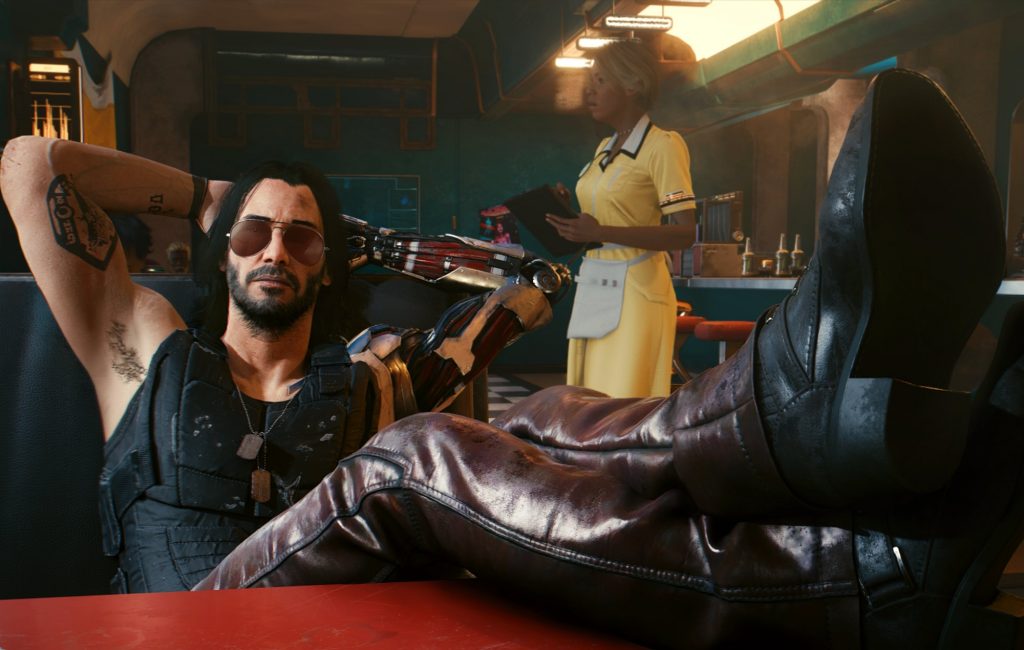The conversation surrounding Cyberpunk 2077 is loud, confusing, divisive, and sometimes too much to bear. It’s hard to dive into the game productively without jumping from contested topic to contested topic.
That being the case, let’s limit our Cyberpunk 2077 conversation to one of the game’s most intriguing debates: whether or not Cyberpunk 2077 lives up to expectations as an RPG.
It’s actually a fascinating debate. In the earlier days of Cyberpunk 2077‘s promotional campaign, developer CD Projekt Red went out of their way to promote the game as an RPG. They seemed to recognize that they needed to manage expectations from fans who would look at the game’s combat and open-world segments and assume that Cyberpunk 2077 was a first-person shooter or GTA-like experience.
What’s somewhat odd, though, is that Cyberpunk 2077 ended up being much more of an action/adventure game than CD Projekt Red sometimes indicated it would be during the buildup period. In fact, some fans have noticed that CD Projekt Red has started referring to the game as an action/adventure title rather than a role-playing game.
At first, it’s hard to see the disconnect. A few hours with Cyberpunk 2077 reveals character skills, equipment points, origin stories, dialog options, and so many of the other elements that we’ve come to associate with the best modern RPGs. Even the combat system emphasizes a more methodical style of action based more on your character’s stats than pure gunplay.
It’s when you dive deeper that things start to unravel. For instance, you can choose your character’s origin story, but the impact of your choice is largely limited to a few additional dialog options once you’re past the introductory sequence. Items have stats, but unless the stats are significantly different, the impact of different items is highly debatable. There’s a character creator, but the options are limited and you have very few opportunities to alter your character’s appearance after the initial creation process. I could go on, but the general idea is that Cyberpunk 2077 is incredibly limited when it comes to building your character and making them your own through cosmetic, skill, and dialog choices.
In some ways, Cyberpunk 2077‘s approach to RPG mechanics is to be expected. After all, The Witcher 3 was lacking in terms of certain customization options, but it’s widely accepted to be not just an RPG but one of the most beloved RPGs of all-time.
When it comes to Cyberpunk 2077, though, expectations were certainly different. In a game world that’s all people using the latest technological advances to escape the confines of their physical form and other traditional human boundaries, it’s a little strange that Cyberpunk 2077 won’t even let you get a haircut. Even many of the game’s implants and skill choices ultimately result in performance bumps rather than entirely new abilities and additional ways to solve key sequences.
If you go back and review every official thing we’ve been told about Cyberpunk 2077, you’ll probably find that the vast majority of the content that was expected to be in the game is in the game. Cyberpunk 2077 ultimately doesn’t look that different from the various extended gameplay previews that CD Projekt Red started releasing earlier this year.
Yet…something certainly feels off about the way that everything comes together. While it was strongly suggested that Cyberpunk 2077 may ultimately be a more ambitious take on the Deus Ex series, the game falls just short of expectations even in that respect by sometimes failing to offer the character building and gameplay freedom that defined that series.
If it turned out that we misread CD Projekt Red’s intentions and what kind of game they intended for Cyberpunk 2077 to be, then it would be easy to overlook the ways that Cyberpunk 2077 falls short as a more hardcore RPG. However, it really feels like the more likely explanation was that CD Projekt Red either didn’t have the time to fulfill the game’s role-playing potential or were otherwise conflicted in regards to what the game should ultimately be.
The shame of it is that if you look at Cyberpunk 2077 as an action/adventure game with RPG elements or even a slightly lighter modern RPG game similar to Fallout 4, it’s actually a well-executed example of those design concepts. Like so many other elements of the Cyberpunk 2077 experience, though, even the most enjoyable moments of the game can sometimes leave you with the feeling that the game we got isn’t necessarily what its creators fully-intended for it to be.





